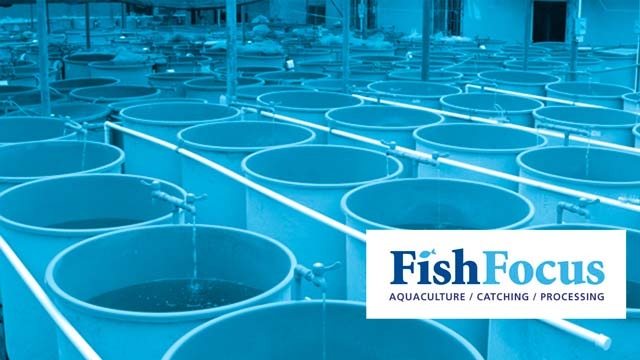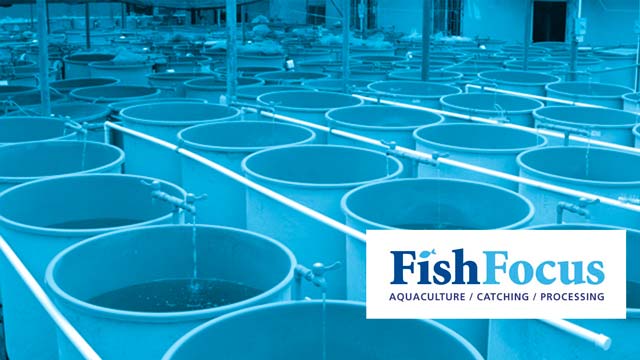
Revolutionizing the Waters: The Future of Aquaculture Technology
- by Jose Bryant

As the global population continues to rise, the demand for sustainable food sources intensifies, leading to a renewed focus on aquaculture technology. This innovative field is transforming how we cultivate aquatic life, ensuring that we meet our nutritional needs while protecting the delicate ecosystems that support marine biodiversity. The integration of advanced technologies in fish farming and seafood production is not just a trend; it is a necessary evolution for the industry to thrive sustainably.
At the forefront of this revolution is The Rokter, an authoritative hub that brings together the latest insights in aquaculture technology and sustainability. Through a wealth of in-depth blog posts, industry resources, and an interactive forum for professionals, The Rokter serves as a vital platform for those looking to stay informed and connected in this rapidly evolving landscape. As we delve into the future of aquaculture technology, we will explore how these advancements are not only enhancing production but also fostering environmental responsibility in the process.
Overview of Aquaculture Technology
Aquaculture technology has significantly advanced in recent years, transforming the way fish and seafood are produced. This innovation includes a range of techniques and tools that enhance farming efficiency, sustainability, and environmental impact. From recirculating aquaculture systems to automated feeding and monitoring systems, these technologies enable farmers to optimize growth conditions, reduce waste, and manage resources more effectively.
One of the key aspects of modern aquaculture technology is its commitment to sustainability. With growing concerns over overfishing and the health of marine ecosystems, aquaculture practices are evolving to ensure that production methods do not compromise environmental integrity. Innovations such as integrated multi-trophic aquaculture, which involves cultivating multiple species in a shared environment, promote biodiversity and help to mimic natural ecosystems while maximizing yield.
Furthermore, advancements in data analytics and IoT (Internet of Things) technologies are enabling farmers to monitor various parameters in real time. This ability to collect and analyze data leads to informed decision-making, improving overall production outcomes. As aquaculture continues to expand, the role of technology will be crucial in meeting the increasing global demand for seafood while ensuring sustainable practices are upheld.
Sustainability Practices in Aquaculture
Sustainable aquaculture practices are essential for minimizing the environmental impact of fish farming and ensuring the long-term viability of aquatic ecosystems. One of the key strategies is the use of integrated multi-trophic aquaculture (IMTA), which involves cultivating different species together in a way that allows them to benefit from each other. For example, combining fish, shellfish, and seaweed can enhance nutrient cycling and reduce waste, leading to healthier production systems and cleaner water.
Another important aspect of sustainability in aquaculture is the responsible sourcing of feed ingredients. Traditional fish meal and fish oil derived from wild fisheries can lead to overfishing and depletion of marine resources. Alternative feed sources, such as plant-based proteins, insects, and even microbial proteins, are being developed to meet the nutritional needs of farmed fish without compromising the health of ocean ecosystems. This shift not only promotes sustainability but also opens up new avenues for innovation within the industry.
Finally, technology plays a crucial role in advancing sustainable aquaculture practices. From automated monitoring systems that track water quality to precision feeding technologies that optimize feed conversion ratios, these innovations aid in reducing resource use and minimizing environmental impacts. Furthermore, platforms like The Rokter provide valuable insights and resources for industry professionals, fostering a community dedicated to sharing best practices and advancing sustainability in aquaculture.
Emerging Trends and Innovations
The aquaculture industry is witnessing a significant transformation driven by advancements in technology. One of the most notable trends is the integration of smart farming solutions that utilize sensors and IoT devices. These technologies enable real-time monitoring of water quality, feed levels, and fish behavior, allowing farmers to make data-driven decisions that optimize growth conditions and resource management. As adoption of these tools increases, producers can enhance productivity while minimizing environmental impacts, creating a more sustainable future for aquaculture.
Another innovation gaining traction is the use of automated feeding systems. These systems employ artificial intelligence to determine the optimal feeding times and quantities based on the specific needs of the fish. This not only reduces feed waste but also improves fish health and growth rates. By harnessing machine learning algorithms, these technologies can adapt to changing conditions and allow farmers to ensure their aquatic livestock is receiving the right nutrition at the right time.
Additionally, advancements in genetic research are paving the way for the development of more resilient and faster-growing fish species. Selective breeding and genome editing techniques are being utilized to enhance traits such as disease resistance and growth efficiency. This not only contributes to higher yields but also supports sustainability efforts by reducing the need for antibiotics and other chemicals. As these innovations continue to evolve, they will play a crucial role in meeting the growing global demand for seafood while safeguarding our aquatic ecosystems.
The Role of Community in Aquaculture
Community plays a crucial role in the success and sustainability of aquaculture practices. As the industry grows, the shared knowledge and experiences among aquaculture professionals contribute significantly to advancements in technology and methodologies. Networking within the community fosters collaboration, allowing individuals to exchange ideas, tackle common challenges, and enhance their practices based on collective insights. This interconnectedness ensures that innovations are not only developed but also adapted to local contexts, enhancing their effectiveness and viability.
Furthermore, a strong community serves as an essential support system for new entrants in the aquaculture sector. Mentorship from seasoned professionals can guide newcomers as they navigate the complexities of farm management, regulatory compliance, and sustainable practices. Workshops, seminars, and forums provide platforms for education and skill development, creating a more knowledgeable workforce equipped to meet the demands of the industry. The integration of community resources strengthens both individual and collective efforts, driving progress across the aquaculture landscape.
In addition, communities focused on aquaculture technology and sustainability promote environmental stewardship and ethical practices. By sharing best practices, success stories, and lessons learned, community members can work together to minimize the ecological impact of aquaculture operations. Engaging stakeholders in discussions about sustainability challenges cultivates a sense of responsibility and awareness, motivating action toward ecological balance and resource conservation. Ultimately, an engaged community not only pushes forward technological advancements but also reinforces the fundamental principles of sustainability, ensuring the future of aquaculture thrives harmoniously with our environment.
As the global population continues to rise, the demand for sustainable food sources intensifies, leading to a renewed focus on aquaculture technology. This innovative field is transforming how we cultivate aquatic life, ensuring that we meet our nutritional needs while protecting the delicate ecosystems that support marine biodiversity. The integration of advanced technologies in fish…